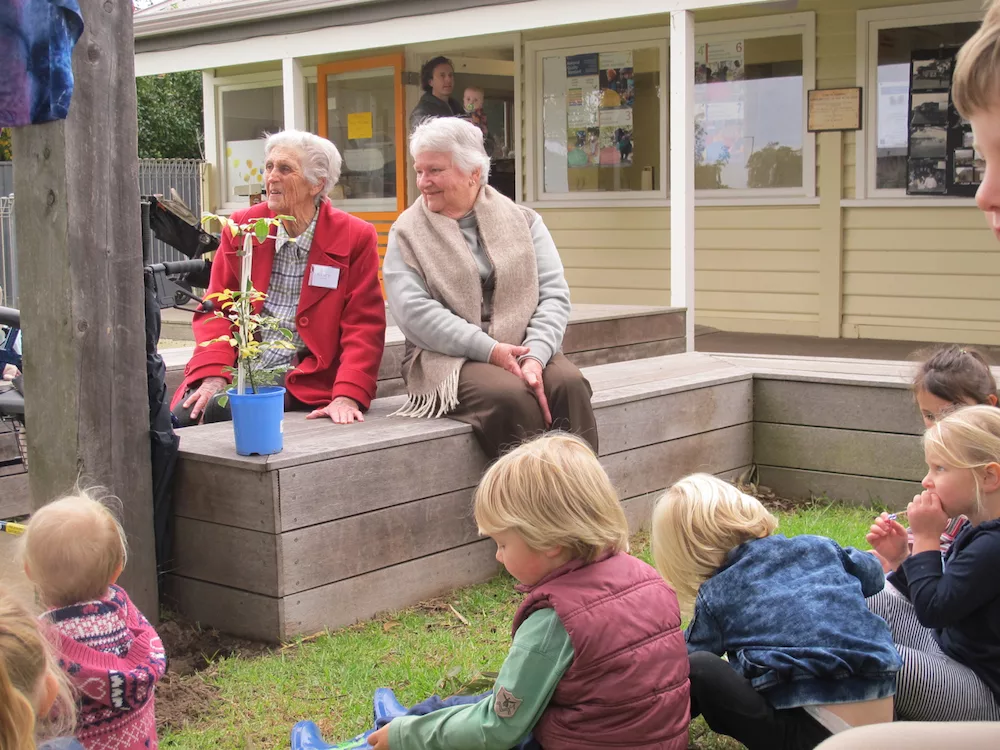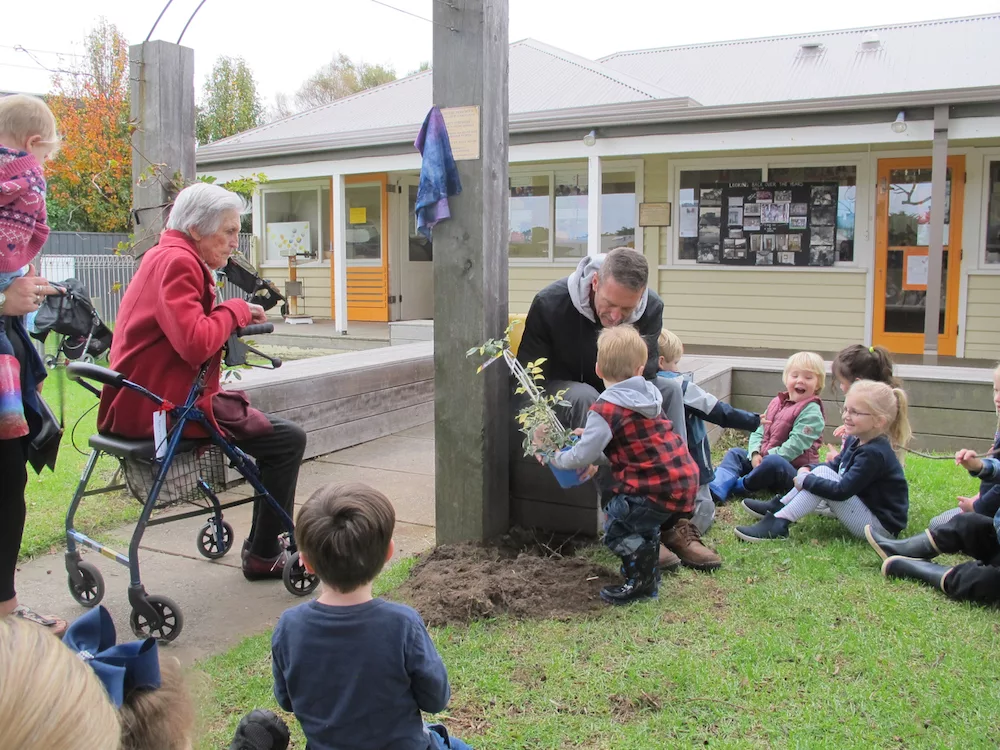History
In the early 1960’s Flinders was a small rural farming community. Before there was a kinder, children who lived on the farms only played with their brothers and sisters, they didn’t have the opportunity to meet other children until they went to Red Hill Consolidated School on the bus.
Children who had not socialised before primary school struggled to adjust, indicating a need for a pre-school so young children could learn about playing with others.
The original idea for the Flinders kinder started over a kitchen table at Anne Brown’s house. Nancy Stephens, who moved to Flinders in the early ’50s, visited long-time local Anne Brown and asked if she agreed there was a need for a pre-school. The two friends both had young children and knew several families in the Flinders / Shoreham area who would also benefit from access to early childhood education.
To start a kindergarten, applications needed to be made through the state Infant Welfare Department and the Health Centre system. Nancy did an inventory of everyone in the Flinders community who had children or was planning to have them and establish if there would be a future demand for a pre-school and persisted with the Flinders communities application.
The Flinders kinder was established, and a committee of active and caring parents was formed in 1961.
The original committee members were:
- Nancy Stephens
- Jean Brown – who was the first president and later became a teacher’s assistant for many years.
- Anne Brown
- Lorraine Bell
- Judy Dungar
- Nola Delaney
- Shirley Delaney
- Helen Boyd
Some of the original Flinders Committee are still living in Flinders.
To start the kinder, the committee needed to hire a teacher by 7 February 1961. It was ok for the committee Mum’s to teach one or two sessions as subs; however, they needed someone trained. Luckily the St. Johns Church on King Street had a new vicar, and his wife Muriel Gorrie was a willing teacher since she had a kinder aged daughter and a younger son. Muriel taught for 4-5 years.
In the kinder’s first year, there was about a dozen children. The three and four-year-olds were mixed in the one class.
The first location for the kinder was the hall at the back of the Presbyterian church on Bass street, which was new at the time. The health centre also moved in to share the space. Benefactor of the church, Rina Smith (nee Holland), paid 50% of the rent for many years, enabling the committee to keep the kinder fees very low.
The kinder stayed in the church hall until the late 70’s when a weatherboard building was brought over from Dromana and established where the kindergarten is today. Nancy was elected into the Flinders Shire Council in the 70’s, and she gave a speech at the opening of the new building. Pam Commons was the first president in the new building.
Thirty years ago, in the early ’80s the kinder was in trouble due to enrolments. The government would not fund pre-schools that had less than 12 children. In 1986 there was a particularly small amount of enrolments in the three-year-old group, and there were concerns that the kinder would not be able to go on.
To save the kinder, Nancy invited Martin Dickson HR, who was the Education Minister in state parliament. After visiting Flinders, he spoke to parliament about how important a kinder is for a small community because it’s a meeting place for children and their families. He said that pre-schools are crucial in rural areas, offering a supportive environment and social connection for mothers. The government was urged to support country pre-schools at all costs, even more so than urban ones.
Nancy Stephens continued advising the kinder committees and attended every AGM until 2017. She had 4 children, 6 grandchildren and her great-grandson Leo is attended the kinder in 2018. In May 2018, Leo’s class unveiled a plaque commemorating Nancy’s years of service and gratefully acknowledging the founding families. Anne Brown, her granddaughter and great grandchildren, were also at the unveiling.


Nancy passed away in March 2019. This history was recorded by her granddaughter Emily Brett in June 2018. If anyone would like to add to the history, please contact the kinder and ask for Emily Brett’s contact info.
